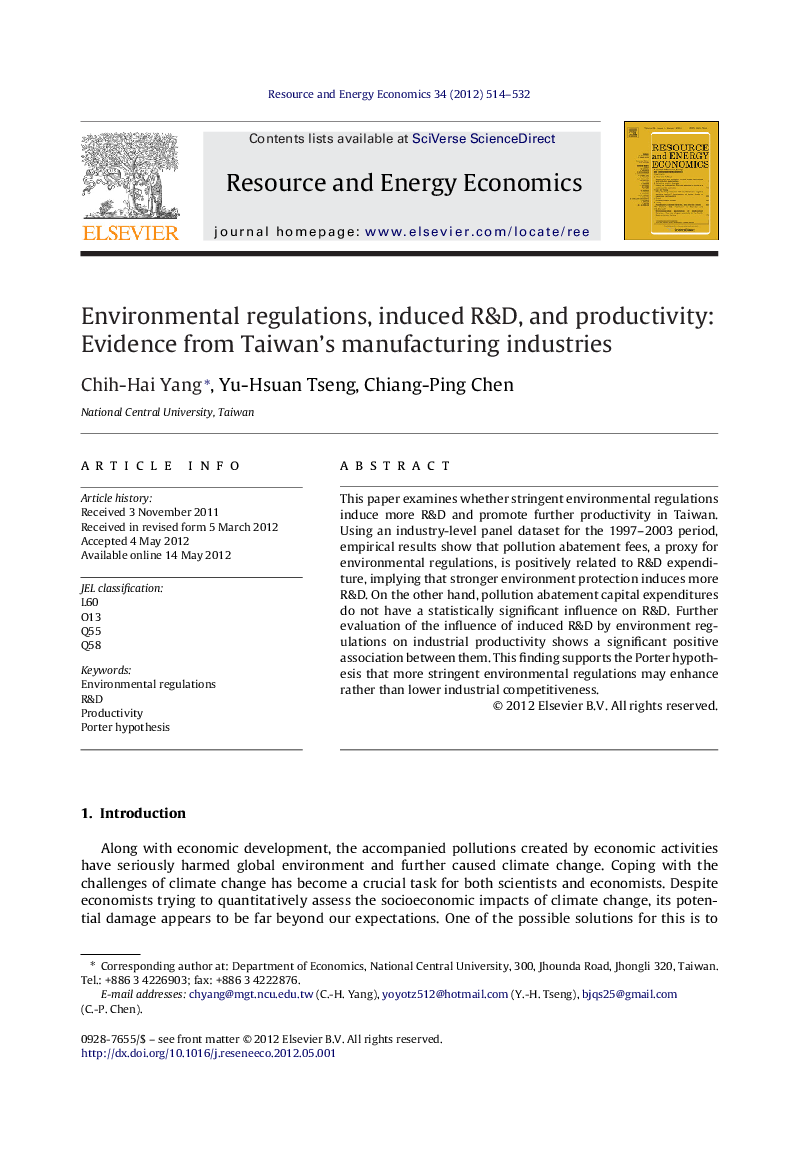| Article ID | Journal | Published Year | Pages | File Type |
|---|---|---|---|---|
| 985729 | Resource and Energy Economics | 2012 | 19 Pages |
This paper examines whether stringent environmental regulations induce more R&D and promote further productivity in Taiwan. Using an industry-level panel dataset for the 1997–2003 period, empirical results show that pollution abatement fees, a proxy for environmental regulations, is positively related to R&D expenditure, implying that stronger environment protection induces more R&D. On the other hand, pollution abatement capital expenditures do not have a statistically significant influence on R&D. Further evaluation of the influence of induced R&D by environment regulations on industrial productivity shows a significant positive association between them. This finding supports the Porter hypothesis that more stringent environmental regulations may enhance rather than lower industrial competitiveness.
► Whether stringent environmental regulations induce more R&D and promote productivity? ► We adopt a Taiwanese industry-level panel dataset for the 1997–2003 period. ► Pollution abatement fees are positively related to R&D, whereas PACE do not. ► Induced R&D by environment regulations shows a significant influence on productivity. ► Both pollution abatement fee and PACE have a directly positive impact on productivity.
